Open Call Results – “Worthy to be Remembered”
We are delighted to announce the results of the open call for the online artistic mini-residency Worthy to be Remembered – Artistic Reflections on Memory and History!
👉 Learn more about the project here.
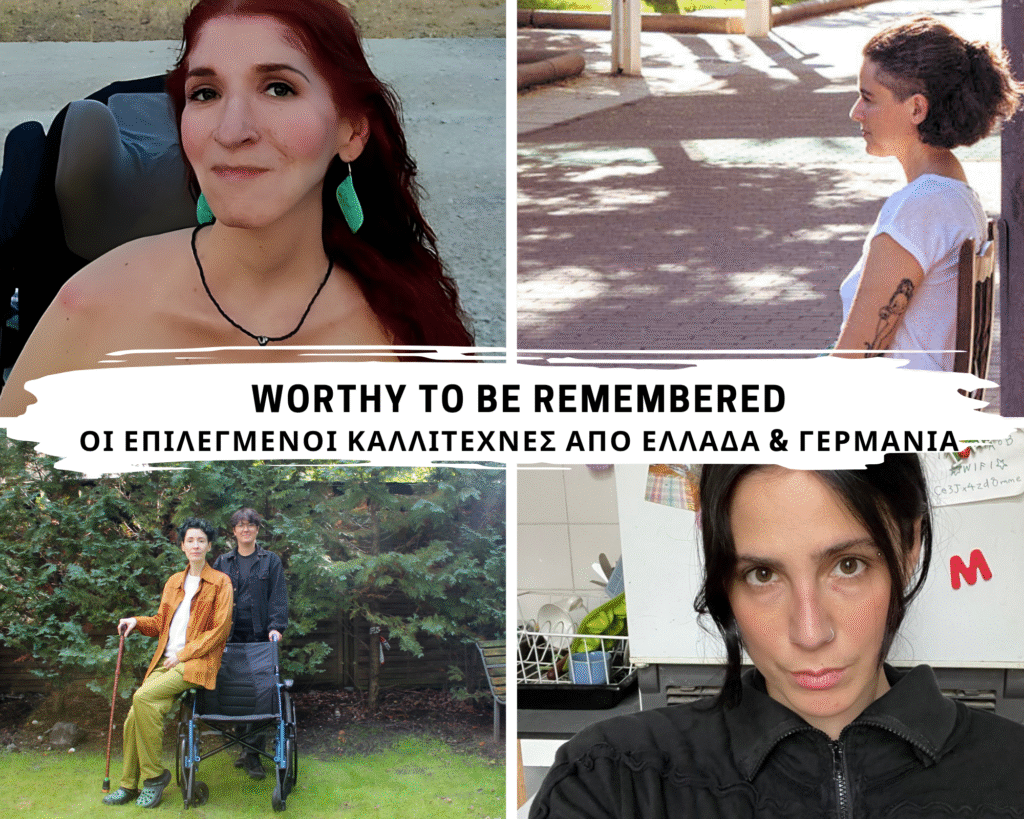
In June, we invited disabled and Deaf artists living in Greece and Germany to apply for “Worthy to be Remembered”, an interdisciplinary artistic programme focusing on the overlooked histories of disabled war veterans. Artists were encouraged to delve into historical narratives and transform them into contemporary artistic expression.
The project is led by liminal (Greece) in collaboration with Berlinklusion (Germany), a disability led collective creating inclusive and accessible art projects, Simeio: Researching & Confronting the Far Right (Greece), and historian Iason Chandrinos (Greece).
Following a thorough evaluation of applications from artists in Greece and Germany, the selected participants stood out for their creativity and artistic approach. The selection process was particularly demanding due to the high quality of submissions. We warmly thank all those who shared their work and ideas with us.
Meet the artists
Vicky Dimitropoulou
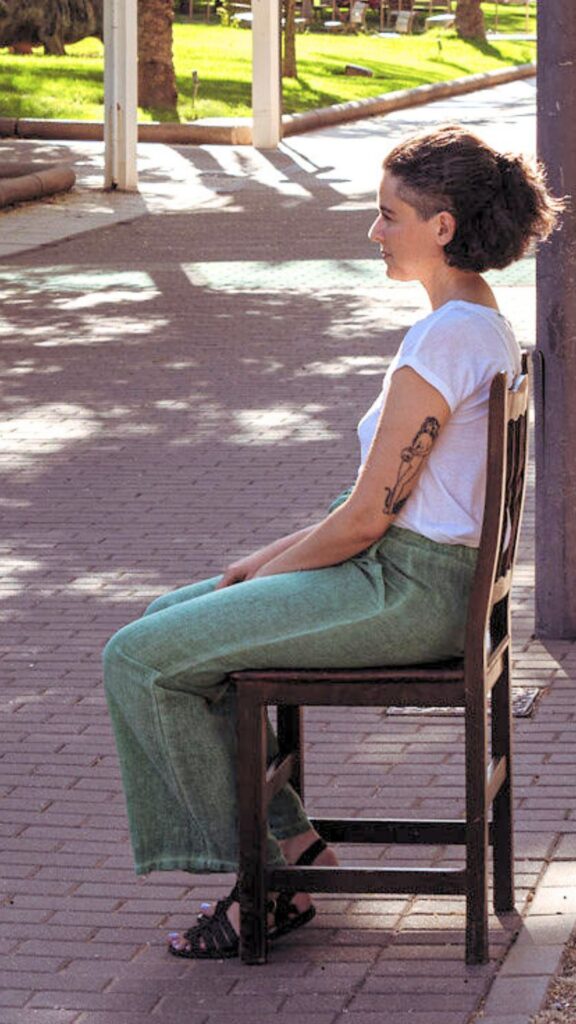
Vicky Dimitropoulou is a deaf/Hard of Hearing performer and cultural manager based in Greece and Spain. She studied Cultural Management at the Valencia Polytechnic University and Communication and Cultural Studies at Panteion University in Athens.
Her work combines storytelling, performance, and social research, with a focus on the social issues faced by the communities she collaborates with. She is a founding member of amana mneme, a Greek-Brazilian artistic duo that explores place-based memory and promotes the active involvement of local communities in the creative process.
Eva Lampara
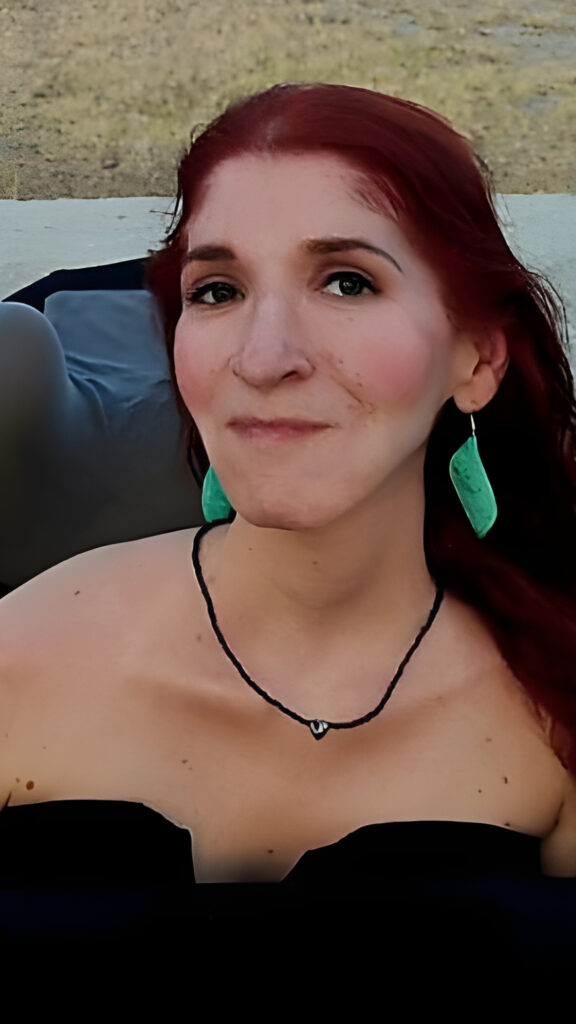
Eva Lampara (EVArtist) is a visual artist, performer and graphic designer based in Athens. She paints with her mouth and uses the stillness of the body as a means of expression, redefining notions of identity and diversity. Active in the ARTimeleia art group, she has participated in festivals, theatre performances and campaigns that promote inclusion in art and society.
Her artistic practice focuses on physicality, identity and diversity. Her work challenges social stereotypes and advocates for a more inclusive understanding of disability. Moving fluidly between visual arts, theatre, and activism, she creates pieces that provoke reflection and invite change.
RC Taube & Kit Blamire
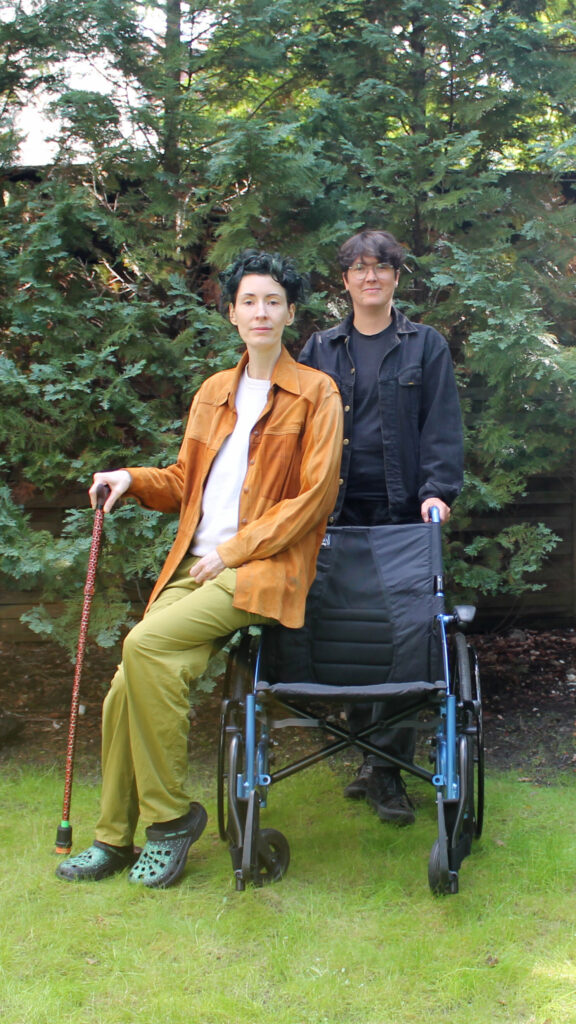
RC Taube is a queer disabled artist based in Berlin-Schöneweide, whose practice explores themes of repetition and replication. Their recent work engages with language, sound, and clay as primary media.
Kit Blamire is a queer disabled filmmaker, writer and riso printmaker whose work focuses on sickness as anti-capitalism and on documenting pandemic grief.
They seek to explore how fascist ideologies shape society’s understanding of disability and how resistance emerges in our everyday lives and collective movements. Within this context, their work also aims to expose the erasure of the ongoing COVID-19 pandemic and the widespread abandonment and endangerment of disabled people.
Almitra Pyritidis
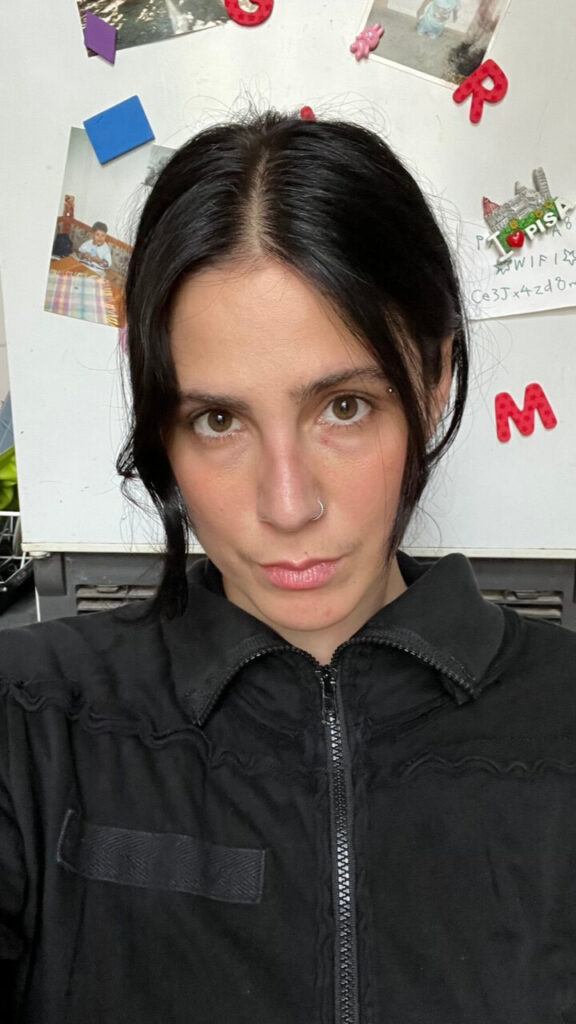
Almitra Pyritidis is an interdisciplinary artist based in Berlin. Her work explores how sickness, memory, and identity – both personal and collective – intersect and shape our experiences.
She uses body-based practices like movement research, dance, and performance to think about the body as a social construct and explore her experiences related to sickness. She also works with sculpture and installation and is interested in social and political concepts which she explores critically in her practice.
The next steps
The selected artists participated in a two-day online workshop (22 & 24 July), where they had the opportunity to get to know one another, as well as the teams of liminal and Berlinklusion. The workshop included an introduction to the historical context of the project and a presentation of key concepts around accessibility in the performing and visual arts.
Until November, the artists will continue to develop their work with the support of tailored mentoring sessions. With guidance from the partner organisations, they will explore ways to embed accessibility into their creative processes. At the end of November, they will present their accessible works—or the progress made so far—during an online event.
➡️ To stay up to date on the next stages of the project, follow us on our website and social media, or subscribe to our newsletter.
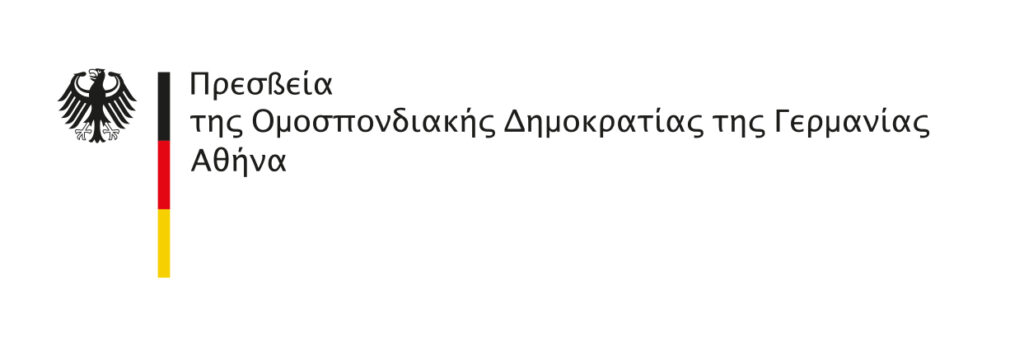
The project is co-funded by the German Federal Foreign Office through the Greek-German Future Fund.
